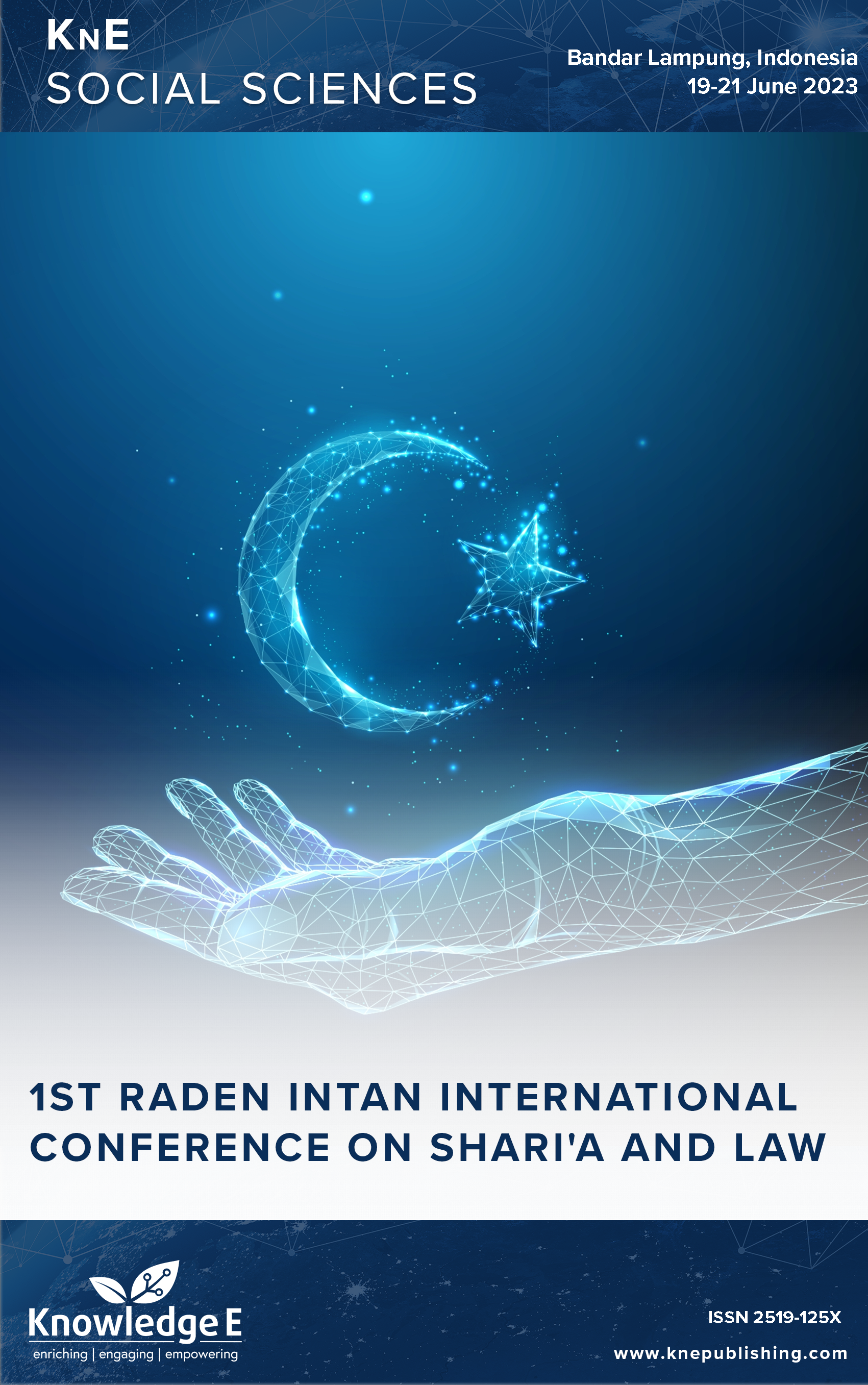Economic Philosophy as the Existence of the 5.0 Era Development in Sharia and Conventional Banking
DOI:
https://doi.org/10.18502/kss.v9i2.15003Abstract
With digital transformation and progress in technology, the 5.0 era has a huge impact on the industry of Islamic and conventional banking. Understanding the existence of Islamic and conventional banking in the 5.0 era relies heavily on economic philosophy. This study aims to understand the role of economic philosophy in maintaining and developing Islamic and conventional banking in the 5.0 era. This study used a descriptive analysis approach, and the data were collected from literature and other relevant sources. Conventional banking, on the other hand, relies on the philosophy of economy neoclassical, which focuses on the development products and services. Islamic and conventional banking are influenced by progress technology and digital transformation in the 5.0 era. Application mobile banking, digital payments, data analytics, artificial intelligence, and blockchain technology are several examples of very important technology or facing challenges and exploiting opportunities in this era. However, in the era of 5.0, economic philosophy is also challenging to apply in Islamic and conventional banking. Conventional banking can notice the difference between the social and financial aspects, but Sharia banking must consider current principles to integrate technology. Sharia and conventional banking need to keep going and develop relevant digital products and services, strengthen regulation and supervision, and guarantee security and privacy of customer’s information. Research results show that good Sharia banking as well conventional are based on economic philosophy. Islamic banking relies on philosophy of Islamic economics, which focuses on principles like prohibition of usury, justice, and sustainable environment.
Keywords: philosophy, economics, Sharia, conventional
References
Agnusia NA, Cahyani MD. Landasan Filosofis Ilmu Ekonomi Syariah. Center for Open Science; 2022. DOI: https://doi.org/10.31219/osf.io/fujt3
Takhim M, Purwanto H. Filsafat Ilmu Ekonomi Islam. Syariati: Jurnal Studi Al-Qur’an dan Hukum. 2018;4(01):105–14. DOI: https://doi.org/10.32699/syariati.v4i01.1167
Muhit M, Darsono MM, Syarif N. Interkoneksi Nilai Filsafat Syariah Dan Filsafat Ekonomi Syariah. Ad-Deenar: Jurnal Ekonomi dan Bisnis Islam. 2023;6(001):61–88.
Ghozali M, Sari TT. Paradigma Filsafat Ekonomi Syariah Sebagai Suatu Solusi Kehidupan Manusia. DIKTUM: Jurnal Syariah Dan Hukum. 2018;16(2):135–46. DOI: https://doi.org/10.35905/diktum.v16i2.615
Kartini K, Maharini P, Raimah R, Hasibuan SL, Harahap MH, Armila A. PENDEKATAN HISTORIS DAN PENDEKATAN FILOSOFIS DALAM STUDI ISLAM. Jurnal Ilmiah Multidisiplin. 2023;2(03):106–14. DOI: https://doi.org/10.56127/jukim.v2i03.739
Saiban K, Munir M. ANALISIS PENDEKATAN SISTEM DALAM EKONOMI ISLAM (Sebuah Pemikiran Maqashid Al-Syariah as Philosophy of Islamic Law Jasser Auda). Jurnal Ekonomi Syariah Pelita Bangsa. 2022;7(01):12–24. DOI: https://doi.org/10.37366/jespb.v7i01.262
URIF UZ, FAJRIA MIN, AULIA SM. KONSEP PRODUKSI PERSPEKTIF EKONOMI ISLAM.
Wibawa G, Muttaqin R. Implikasi Filsafat Kritisisme Immanuel Kant Bagi Pengembangan Studi Hukum Ekonomi Syariah. Cessie: Jurnal Ilmiah Hukum. 2022;1(1):19–28. DOI: https://doi.org/10.55904/cessie.v1i1.185
Rois AK, Katni K, Sukmawati M, Ahmad IM, Sufi IA. Filsafat Ilmu Ekonomi Syariah sebagai Landasan Sistem Ekonomi Syariah bagi Pendidikan Umat Islam. Jurnal Masharif Al-Syariah: Jurnal Ekonomi dan Perbankan Syariah. 2023;8(2).
Ahyani H, Slamet M. Respon dunia barat terhadap ekonomi syariah di era revolusi industri 4.0. Ecopreneur: Jurnal Program Studi Ekonomi Syariah. 2021;2(2):220–35. DOI: https://doi.org/10.47453/ecopreneur.v2i2.311
Darmalaksana W. Filsafat dan Politik Hukum Islam Perbankan Syariah. Sentra Publikasi Indonesia; 2022.
Rois AK, Katni K, Sukmawati M, Ahmad IM, Sufi IA. Filsafat Ilmu Ekonomi Syariah sebagai Landasan Sistem Ekonomi Syariah bagi Pendidikan Umat Islam. Jurnal Masharif Al-Syariah: Jurnal Ekonomi dan Perbankan Syariah. 2023;8(2).
Muhit M, Darsono MM, Syarif N. Interkoneksi Nilai Filsafat Syariah Dan Filsafat Ekonomi Syariah. Ad-Deenar: Jurnal Ekonomi dan Bisnis Islam. 2023;6(001):61–88.
Muhit M, Darsono MM, Syarif N. Interkoneksi Nilai Filsafat Syariah Dan Filsafat Ekonomi Syariah. Ad-Deenar: Jurnal Ekonomi dan Bisnis Islam. 2023;6(001):61–88.
Astiti NNA, Tarantang J. Kedudukan Sharia Compliance Perbankan Syariah Di Indonesia Perspektif Yuridis-Filosofis. Jurnal Al-Qardh. 2020;5(2):119–33. DOI: https://doi.org/10.23971/jaq.v5i2.2454
Putra HM, Abdurohman D, Ahyani H. Eksistensi Filsafat Ekonomi Syari’ah sebagai Landasan Filosofis Perbankan Syari’ah di Indonesia. Ecobankers: Journal of Economy and Banking. 2022;3(1):30–42. DOI: https://doi.org/10.47453/ecobankers.v3i1.666

